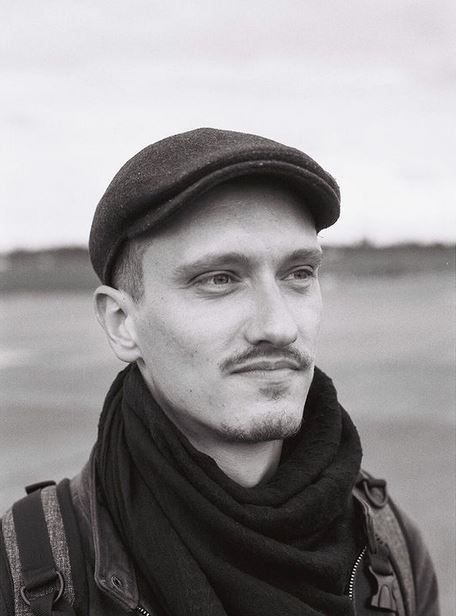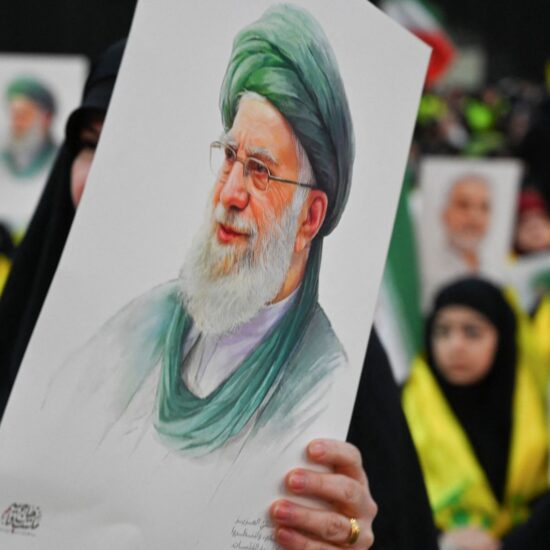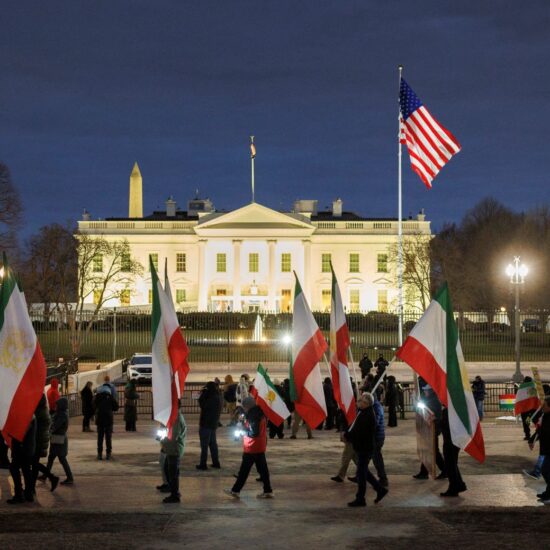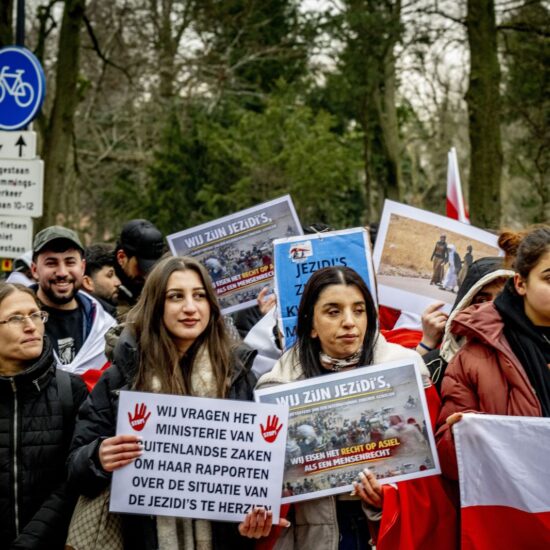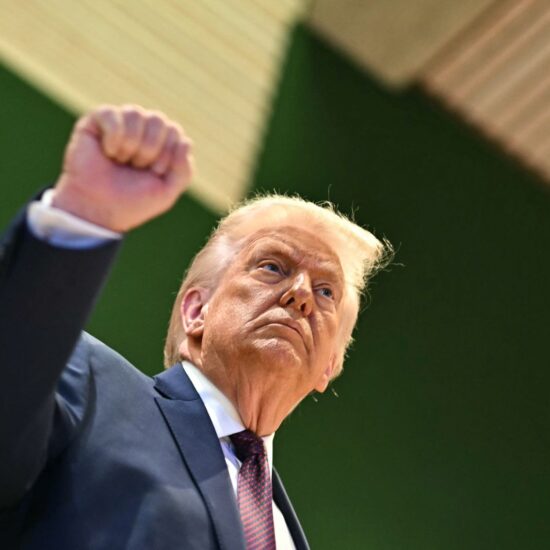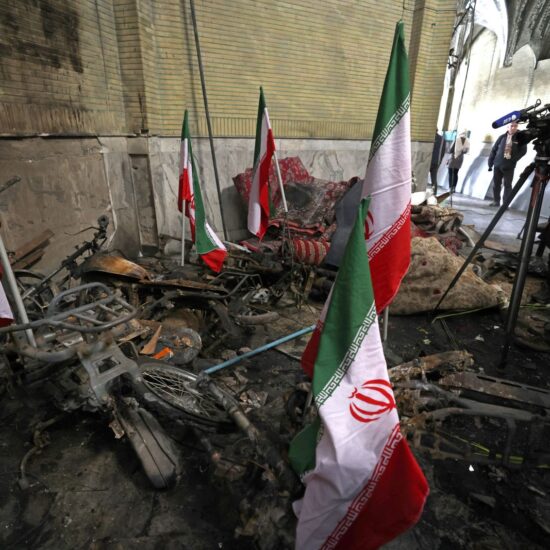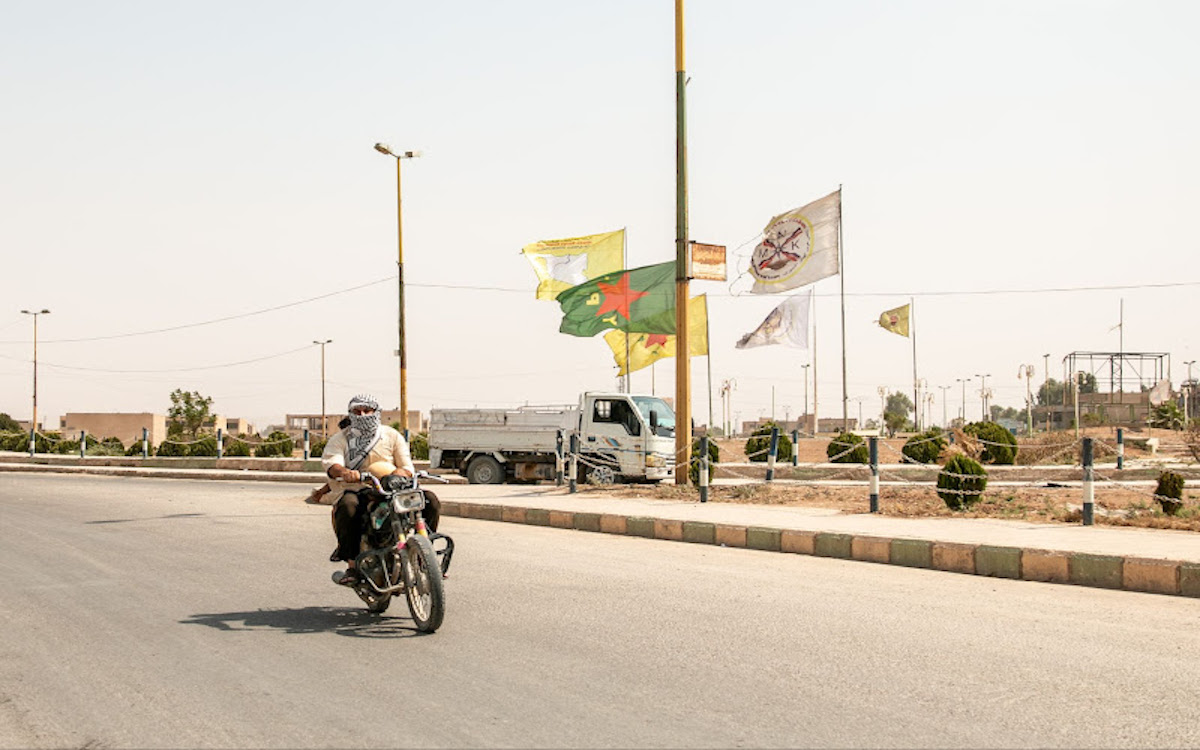
Driving through Qamishlo, Syria, is not an easy task and entails many dangers. The ethnically and religiously diverse city is seemingly safe, controlled by the Autonomous Administration of Northeast Syria (AANES) – a de-facto governing body supported by the US and known for its progressive politics.
But if you drive too far or take the wrong turn, you might either end up in territory held by the Syrian regime, or at the Turkish border wall. Either way, you may be arrested or shot.
No signs guide you, it is simply common knowledge that certain streets or buildings are Bashar al-Assad’s strongholds – they are known as “security squares” and host administrative buildings. Syrian traffic police with white hats and gloves still stand there, a funny appearance reminiscent of decades past.
If you manage to avoid all these traps, you might still get hit by a Turkish drone. Four people, including two children, died this way last week, their limbs charred and bodies riddled by a cluster missile.
To add to the confusion, Qamishlo’s airport doesn’t belong to the city’s administration, but to the Regime and Russia – and serves as a landing pad for Iran’s mercenaries and Captagon as well.
As such, Qamishlo is not only the capital of the Jazira region of the AANES, but also a living map of the intricate power balance in the region. Life there unfolds according to the official agreements and tacit deals between Iran, Turkey, Russia and the US, which all hold bases in or around the city.
Turkey’s expansion
“All the actors in Northeast Syria play very complicated and often contradictory games,” said Khattar Abu Diab, a geopolitics consultant linked to the International Center for Geopolitics. “Many wars are happening simultaneously, there is a huge confusion on the ground”, he added.
The most obvious conflict opposes Turkey to the Kurdish-led AANES. The latter has strong ties to Turkey’s archenemy, the PKK (Kurdistan Workers Party) – as the guerilla war between the Turkish army and the Kurdish liberation movement has been raging since 1978.
After operation Olive Branch (2018) and Peace Spring (2019), Turkey and its islamist proxies, the Syrian National Army, have conquered Afrin, Sere Kanye (Ras el Ayn) and Tall Abyad.
“All the regional superpowers fear a power imbalance if Turkey was to advance further into Northeast Syria,” Diab explained. “It would certainly encroach on regime territory, which would reduce both Russia’s and Iran’s margins.”
There, it has started implementing its “security corridor” – a 35-kilometer-wide buffer zone between Turkey and the AANES, where it plans to settle a million Syrian refugees.
“The AANES and SDF are perceived by Turkey as a vital security threat, so it wants to create a buffer zone between Turkish Kurds and Syrian Kurds,” explained Ussama Sheikh Ali, research assistant at the Omran Center for Strategic Studies, a Syrian think-tank based in Istanbul.
To complete this project, Turkish president Recep Tayyip Erdogan is seeking approval for a third military operation since last May but has met firm refusal by Russia – the most influential player in the region – in the last meetings, held on July 19 and August 6.
“All the regional superpowers fear a power imbalance if Turkey was to advance further into Northeast Syria,” Diab explained. “It would certainly encroach on regime territory, which would reduce both Russia’s and Iran’s margins.”
As a presidential election is due in 2023, Erdogan needs a distraction from his disastrous mandate at home – notably a 90% inflation rate and widespread economic crisis. “He will do something, even without Russia’s permission,” Abu Diab believes.
Drought and bombs
For now, Turkey and its proxies have been waging a low intensity war based on bombings and ecological warfare. Since the beginning of August, at least 14 people were killed and 20 wounded in Turkish bombings – civilian and military alike, the Rojava Information Center reported.
In response, 30 Turkish soldiers were killed last week by the Syrian Democratic Forces (SDF), the armed branch of the AANES, led by the Kurdish YPG (People’s Protection Units).
Tell Tamer has been on the frontlines of an invisible war. The Khabur river, its “lifeline,” has been dried out by three years of drought – but the AANES also accuses Turkey of cutting off the water upstream. “They bomb our water lines and fields, and when we go repair them, they fire at us,” said Mhessen Ali Khalil, a farmer whose fields are now inhospitable and dry stretches of dust.
“Cutting off the water in the region and bombing civilians is a powerful tactic to empty the region of its inhabitants,” said Nabil Warde, spokesperson of the Khabur Guards, an Assyrian Christian armed corps belonging to the SDF.
Some 200 kilometers further away, the Tabqa Dam on the Euphrates faces a similar fate. “Using the upstream Ataturk dam, Turkey has sunken the water flow from 500 cubic meters a second down to 200 or 230,” criticized Walat Darwish, its administrator. 5 million inhabitants and 300,000 hectares of fields are reportedly impacted. Downstream cities can only receive 2-6 hours electricity a day, and a reported 70000 persons have been infected with leishmaniasis, a skin disease caused by mosquito bites.
The demographic and cultural battle
Although relations between all sects and ethnicities have historically been complicated, all persons NOW talked to assured there is no conflict between Arabs, Kurds, Muslims or Christians in NES.
But Turkey and its militias seem to target minority populations. Tell Tamer’s 40,000 Assyrian inhabitants, a Christian sect, have mostly gone into exile to the USA or Australia, with less than a thousand remaining. In the captured towns of Afrin and Sere Kanye, only a few Kurdish or Armenian families are left, having been replaced by 20,000 Syrian refugee families.
“Erdogan’s goal is to spread a certain vision of Islam and to replace Kurdish and Christian populations by Sunni Arabs,” said Orhan Kamal, coordinator at Hevdesti (“Synergy” in Kurmanji), an independent observatory that records acts of war. One anonymous journalist from Sere Kanye told NOW that his house had been converted to a Turkish koranic school.
The AANES and anonymous inhabitants and fighters which NOW talked to also accused Turkey of supporting fundamentalist Sunni militias such as the Nusra Front and even ISIS by opening its borders, financing or even arming them – although these claims could not always be verified and should be treated with precaution.
On the other side, Iran seems to be pursuing similar goals. “Since the Ukraine war, it profits from Russian disengagement to develop its influence in Northeast Syria”, Abu Diab said.
An ally of Bashar al-Assad, its presence there is composed mainly of Hezbollah and other Shiite brigades and focused on Shehba and Zahra, two Shiite villages close to Aleppo, in regime-held territory. It claims to maintain only advisors there, although the opposite is clear.
Iran’s crescent
But it has expanded its grip, openly displaying an Iranian flag on its new base in Ibbin on July 13th. The same base, hosting tanks, was struck by a Turkish missile one week later.
Iran has also helped the regime deploy approximately 400 Syrian Arab Army troops to the Kurdish frontlines in Manbij, Tel Rifaat, Kobane and Ayn Issa after a secret agreement with the SDF to assist them in their fight against Turkey, Al Monitor reported. But an anonymous high-ranking SDF official denied such involvement, saying that “we have no agreement whatsoever with Iran.”
Furthermore, Iran has allegedly used Qamishlo’s air base not only to transport troops around the region – but also drugs. Anonymous sources reported that Captagon had been smuggled via fake Red Crescent trucks to Iraq and to the Syrian 4th Armored Division, at the frontlines.
As such, it might be using NES to expand its “Shiite crescent” stretching from Tehran all the way through Iraq to Lebanon.
But it is not welcomed warmly by Kurdish (who are largely Sunni) and Christian populations.
“Iran has massacred us worse than Turkey and still represses us today,” said one anonymous Kurdish journalist, referring to Iranian Kurdistan region. Numerous Kurdish demonstrations were bloodily dispersed and Kurdish opponents executed, whilst their Sunni mosques have to be kept underground.
Christians in Tell Tamer shared this opinion. “We are against all non-Syrian military presence here, and the Iranians will not recognize our sovereignty as a people,” said Nabil Warde, spokesperson of the Assyrian Khabur Guards.
Great power games
As Turkey and Iran both seem set on intensifying their presence in Northeast Syria, it is unclear if more serious clashes – or even a full-out conflict – will erupt between them.
This certainly depends on what Russia and the US decide. Both have disengaged from the region recently, but remain forces to be reckoned with.
Russian patrols and warplane movements had been on the down since the start of the Ukraine war, but have taken up pace recently, local observers reported – certainly as a deterrence against a speculated Turkish operation.
On the other hand, the US under Trump’s presidency, have let Turkey march into Afrin, Ras al Ayn and Tall Abyad, to the dismay of their Kurdish allies. But Biden’s foreign policy could take a different turn. The US fields many military bases in NES and trains the SDF as well as the police, the Asayish.
The wrestling match between both superpowers thus forces them to adopt contradictory positions. Russia is al-Assad’s main ally, but it also closed off a weapons sale agreement with Turkey over S-400 missile-defense systems last Tuesday.
“Since Erdogan has not gotten the green light for a military operation, he will try to convince the Syrian regime to take care of its Kurdish problem in exchange for normalization,” Sheikh Ali said.
At the same time, the Turkish government arms Kyiv with deadly drones to help it defend itself against Moscow, but also refrains from joining Western sanctions targeting individuals and state companies in Russia, the single largest source of gas and crude oil for Turkey’s $800 billion economy.
“Russia seeks to intensify the rift between Turkey and NATO”, said Nabil Warde. He also believes that all the superpowers will eventually sell off the Kurdish autonomy in the region “just like merchants would negotiate prices”.
Their goal: eradicating the Kurdish-led AANES and SDF, which are a thorn in the eye of both Turkey and the regime – although the latter has maintained ties to the AANES in order to purchase oil and maintain its presence in the “security squares”.
For Warde, it is clear that if Turkey invades NES, it will give some territories back to the regime in exchange.
“Since Erdogan has not gotten the green light for a military operation, he will try to convince the Syrian regime to take care of its Kurdish problem in exchange for normalization,” Sheikh Ali said.
“This would be of great advantage for the regime, since it would benefit from Turkey’s economic power,” Sheikh Ali added. “But I doubt that the regime has the firepower to attack the Kurds, even though it surely would like to regain full control of Syria.”
A first step in this direction came when the Turkish foreign minister declared studying a normalization of ties with al-Assad.
The latter’s comments sparked anti-Turkish and anti-regime demonstrations in Aleppo, confirming that the power game meets staunch disapproval by both Kurdish, Arabic and Christian inhabitants of the region.
Caught in the crossfire
“In Northeast Syria, we have built up a democratic model based on peace between all communities. This scares all the superpowers involved,” believes Nabil Warde. For him, even Western democratic countries, which should logically support the AANES, restrain from doing so because of its radical politics.
“They see us as pawns and resources in their power games, but dismiss our social revolution,” he criticized. He refers to the “Kurdish revolution” which saw Southern Kurdistan (Rojava) gain independence from the Syrian regime in the midst of the civil war, especially after the defeat of ISIS in 2015. It is based on the democratic confederalism of Abdallah Öcalan, the imprisoned leader of the PKK.
The AANES has built up a direct democracy, based on communal and women’s councils and relative autonomy for all religious minorities. As such, the Assyrian, Syriac, Yezidi, Armenian and Sunni Arabic populations all govern themselves and dispose of their own army and police forces.
“This particularly scares Turkey, whose statehood is based on genocides,” commented Walat Darwish, the Tabqa Dam administrator – referring to the 1915-1923 Armenian and Assyrian genocides, when the dying Ottoman Empire used Kurdish mercenaries to massacre millions of Christians.
Yet, it is unclear if NES’s social revolution will survive the war. Its economy has been under pressure by the war, western sanctions imposed on Syria, and the three-year drought. The autonomous administration has faced increasing militarization and concentration of power in the hands of the PYD, a Kurdish revolutionary party affiliated to the PKK.
“On the ground, there are communal and municipal councils, but in the end every decision has to be approved by PKK cadres. They have captured the power in NES,” Sheikh Ali commented.
Being originally from the region, he shared many local’s views about the AANES imposing its ideology on the region — a grief strongly felt by Arab tribes, which are reluctant to abandon certain traditions such as polygamy to the new secular and progressive laws.
But above all, Sheikh Ali pointed to the rising restrictions and abuses towards the freedom of the press and of expression.
A blatant example came when numerous local and foreign journalists were arrested and one even abducted by NES security forces two weeks ago. “It is increasingly difficult for journalists and for the freedom of the press in the AANES,” Sheikh Ali commented.
For him, the AANES should break its historical ties to the PKK. “It is its only chance to survive and be accepted by Turkey and the USA,” he believes. At the same time, it would enable the democratic experiment to be revived and live on without the PKK’s “dictatorial rule.”
But in the end, it all depends on agreements found between the US, AANES’s military sponsor, and the surrounding governments. No one supports the democratic experiment there, not even the US — who are more interested in propping up a special antiterror police force, the HAT.
“It is possible that they want to replace the PKK-led YPG and SDF by a strong police force, which would also be better for Turkey. This way, they could all find an agreement,” Sheikh Ali said.
Such a model exists in the neighboring autonomous Kurdistan Region of Iraq, which is ruled by Masoud Barazani’s iron fist. Barazani is close to both the US and Turkey, but is infamous for arresting and assassinating journalists and opponents.
What would happen with NES’s democratic, feminist structures is unclear if a similar fate awaited NES. “The future doesn’t look good for the region,” Sheikh Ali said.
Philippe Pernot is a French-German freelance journalist and photographer currently based in Tripoli, Lebanon. He studied political science in France and Germany, and he focuses his work on social movements such as feminism, ecology and anarchism, as well as on minority rights and discrimination. Follow him on Instagram.


